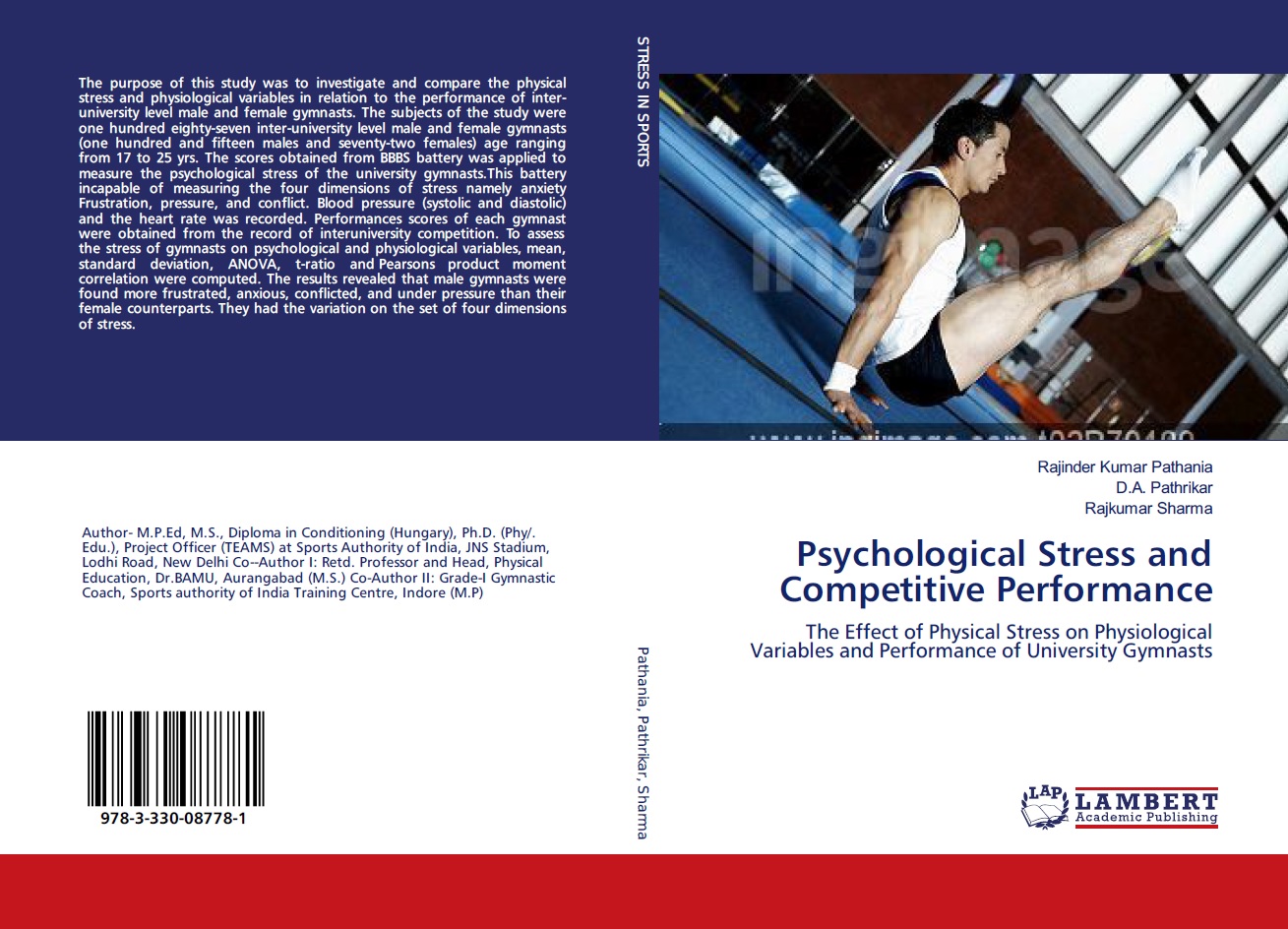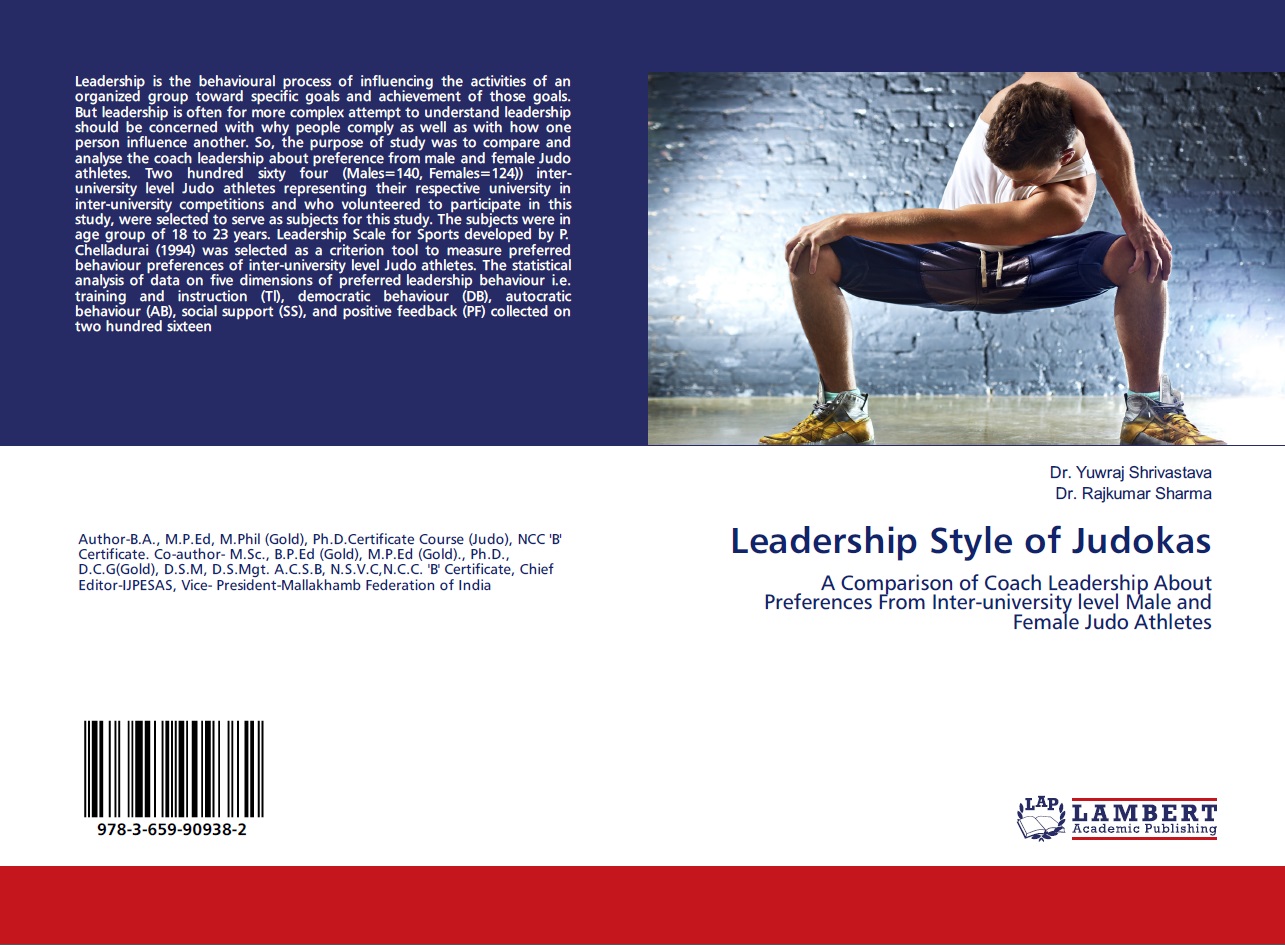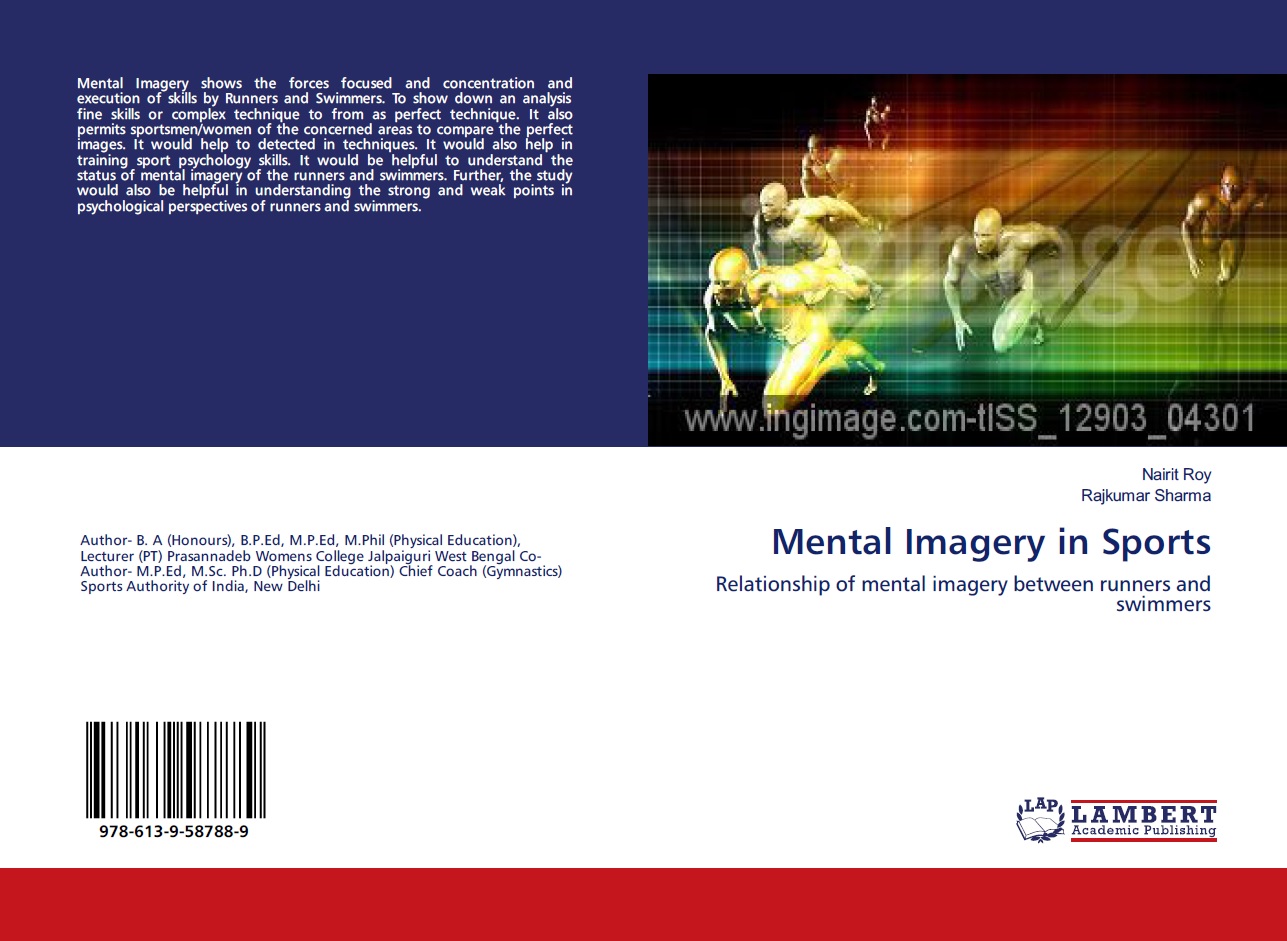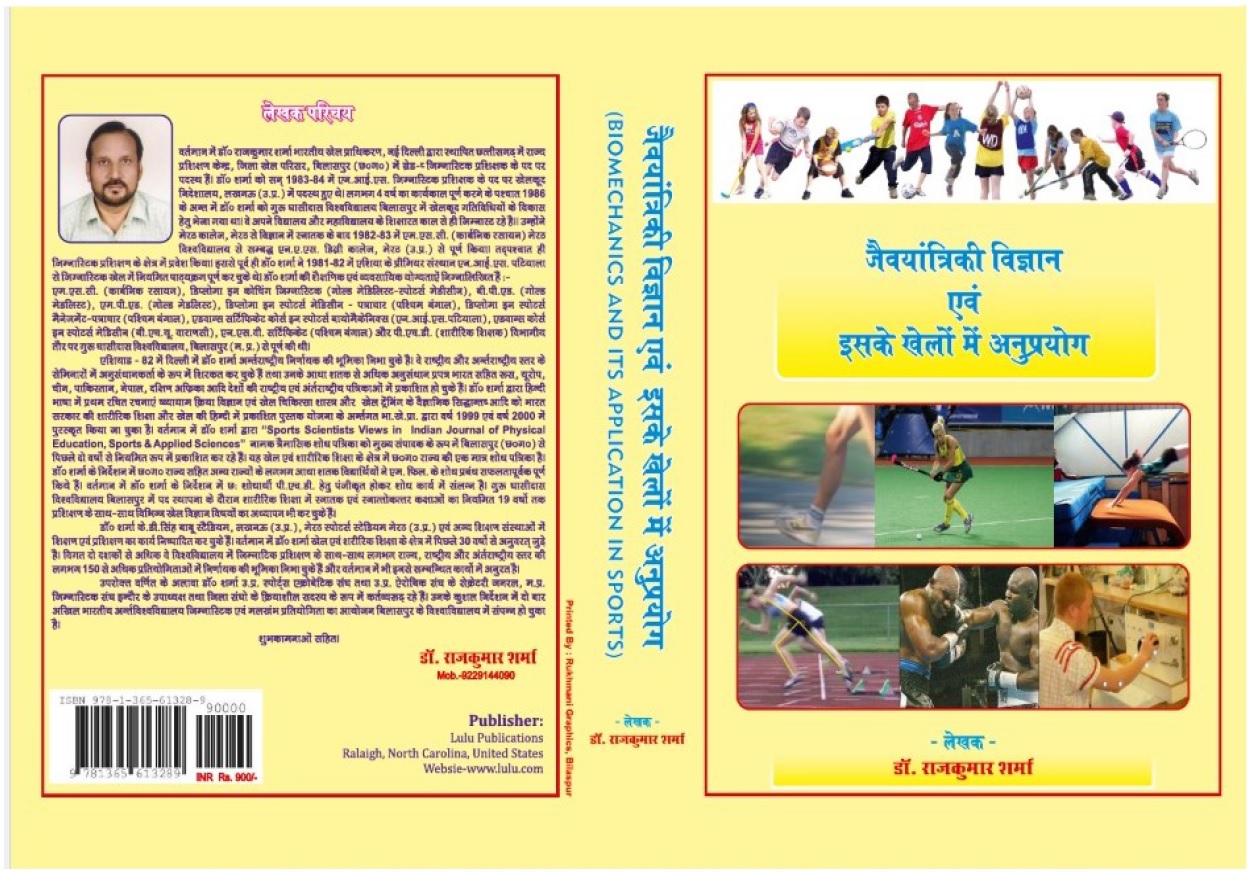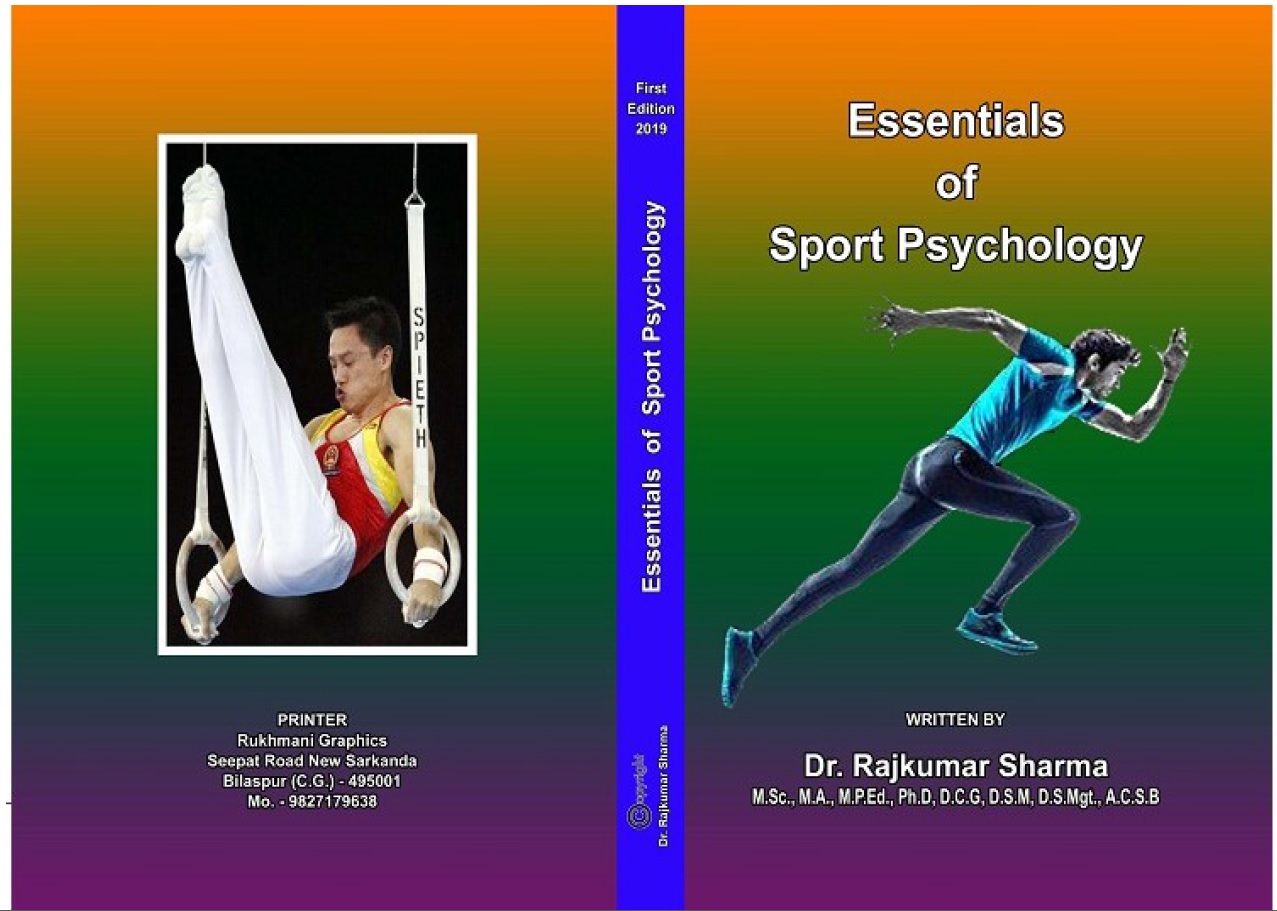| S.No. | Total View Count | Title of Manuscript | Page No | Download/ PDF |
|---|---|---|---|---|
| 1 | EFFECT OF WARM-UP ON 100M SWIM PERFORMANCE – A PILOT STUDY Author: Meriline Gogoi 1 and Dr. Kallol Chatterjee 2 | 53-57 |  10 10 |
Article info
doi no.: 05-2016-44975451,
DOI Link :: http://doi-ds.org/doilink/02.2021-77211191/IJPESAS/2021/JAN/V11/I1/A9
AFFILIATIONS:
-
Assistant Professor, L.N.I.P.E, NERC Guwahati
-
Assistant Professor, Visva Bharati University, West Bengal Email: merilinegogoi@gmail.com
Warm-up has always been an integral part before any physical activity. Although there is a lack of scientific evidence based on the enhancement of performance, the use of warm-up is very prominent among the coaches and athletes. The study was undertaken to investigate the effect of warm-up on 100m swim performance. Ten male swimmers age ranging between 18-21 years with 5 years of minimum experience in competitive swimming (National Level) were randomly selected for the present study from L.N.I.P.E., NERC, Guwahati. Each swimmer performed 100m freestyle at their maximum effort as an individual time trial in two different days with the use (UWP) or no use (NUWP) of warm-up which was counter-balanced by a gap of 24 hours between the experiments. The t-score of 100m Swim Performance was significant as the p-value (.009) is < 0.05 level of significance. Faster time was observed in UWP condition which suggests that the usual warm-up procedures followed before a performance is beneficial for the swimmers. But, the result showed to be insignificant in blood lactate accumulation in either of the conditions. The performance of the participants also depends on the individual variability of the participants.
Key words: Males, warm-up, Freestyle, swimming, performance, blood lactate.
References
Bobo, M. (1999). The Effect of Selected Types of Warm-up on Swimming Performance. International Sports Journal, 3(2), 37-43.
Balilionis, G., Nepocatych, S., Ellis, C.M., Richardson, M.T., Neggers, Y.H., Bishop, P.A. (2012). Effects of different types of Warm-up on Swimming Performance, Reaction Time and Dive Distance. Journal of Strength and Conditioning Research, 26(12): 3297-3303.
Neiva, H. P., Morouco, P. G., Pereira, F. M., & Marinho, D. A. (2012). The effect of warm-up in 50 m swimming performance. Motricidade, 8(S1), 13-18.
Houmard , J A., Johns, R A., Smith, L L., Wells, J M ., Kobe, R W, & McGoogan , S A (1991). The Effect of Warm-up on Responses to Intense Exercises. International Journal of Sports Medicine, 12(5): 480-483.
Huston, J. M. (1993). The Effect of high and Low Intensity Warm-upon the Physiological Responses to a Standardized Swim and Tethered Swimming performance. Journal of Sports Sceinces, 11(2): 159-163.
King, A. (1979). The relative effects of various warm-up procedures on 50 meter times of. Journal of Physical Education, 7(3): 22-24.
Romney, N. C., & Nethery, V. M. (1993). The effects of swimming and dryland warm-ups on 100-yard freestyle performance in collegiate swimmers. Journal of Swimming Research, 9, 5-9.
De Vries, H. A. (1959). Effect of Various Warm-up Procedures on 100-yard Times of Competitive Swimming. Research Quaterly.American Association for Health, Physical Education and Recreation, 30(1): 11-20.
Woods, K., Bishop, P., & Jones, E. (2007). Warm-up and stretching in the prevention of muscular injury. Sports Medicine, 37(12). 1089-1099
Mitchell, J. B., & Huston, J. S. (1993). The effect of high- and low-intensity warm-up on the physiological responses to a standardised swim and tethered swimming performance. Journal of Sports Sciences, 11(2), 159-65.
 admin@sportscientistsviews.com
admin@sportscientistsviews.com

